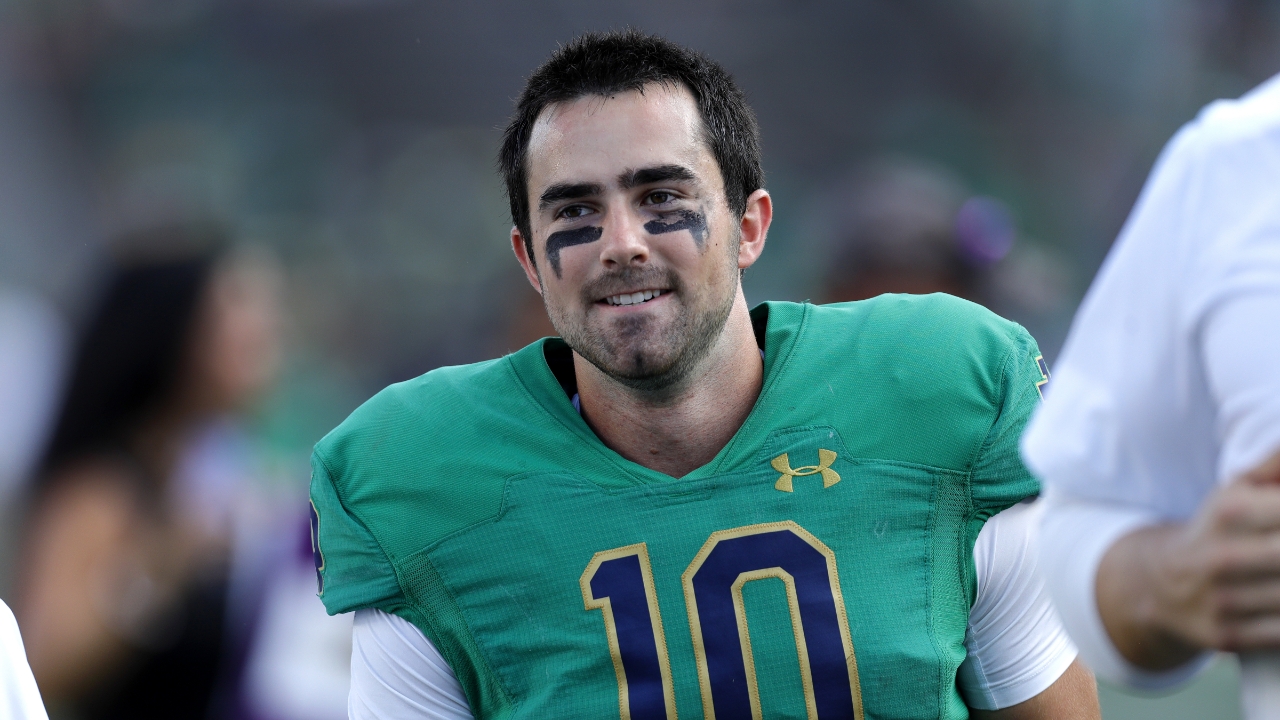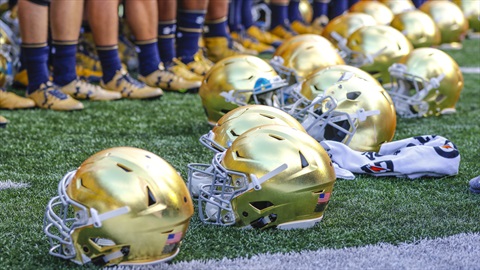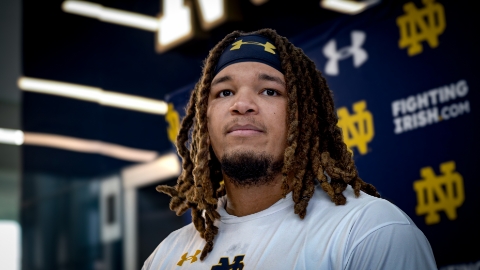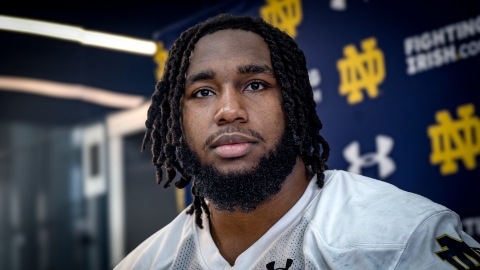Sigh of Relief: After Slow Start, Notre Dame Offense Shows Signs of Consistency

Offensive coordinator Tommy Rees walked toward the tunnel at Notre Dame Stadium. He removed his white ballcap and took a deep breath.
Notre Dame had just escaped a hard-fought contest against Cal with a 24-17 victory.
The offense struggled early, with the Irish going three-and-out on its first four drives, followed by a fumbled snap in Notre Dame territory early in the second quarter.
Up to that point, the starting debut of quarterback Drew Pyne had led to 26 yards of total offense, including a 1-yard deficit on the ground.
“At first you're like, okay, he'll get it,” said coach Marcus Freeman. “I tapped him on the shoulder pad. Then I said, ‘okay, that's not working,’ and I kind of went to the other end of the spectrum and ripped his butt a little bit.”
From the coach’s box, Rees also tore into Pyne over his headset, which the NBC broadcast captured during the game.
After Cal scored 7 points off of Pyne’s fumble, the Irish offense returned to the field and established a ground attack.
“I wanted to run the ball,” Freeman said. “I felt like we were moving the ball and let's continue to run it.”
The Irish responded with a 10-play, 60-yard touchdown drive.
Pyne, who may have entered the game a little too amped up, settled in after the fumble, perhaps in response to the audibly hard coaching from Freeman and Rees. He completed 13 of his final 14 passes for 123 yards and two touchdowns, while also picking up 18 yards on the ground.
“I saw that video [on Twitter],” Pyne said. “Coach Rees, I tell him to be hard on me. I texted him this Sunday, and I said, 'I want you to be very hard on me in practice. I'm going to treat practice like a game, and I want you to as well.'
“That's the standard he holds me to, and that's what I asked for. I respond well to hard coaching.”
In the final three quarters, the Irish amassed 271 yards, three touchdowns and a field goal.
Notre Dame did enough to win against an above-average Cal defense, even if the Irish distilled its offense down to the basics. That is, Rees primarily called for short passes on Pyne rollouts and up-the-middle runs.
To finish off the third-quarter touchdown drive, Rees actually called the same run play for Audric Estime four times in a row.
“For this game, that's what we had to do,” said Notre Dame head coach Marcus Freeman. “I'm not saying this is going to be who we are every game all year. We have to take advantage of what we feel like we can have success against the defense we play.”
But starting next week, the Irish will need more from its offense.
Notre Dame’s 24 points against Cal represents a season high, but that won’t be enough against high-scoring opponents like North Carolina, BYU, Clemson and USC.
The early-season struggles must come as a shock to the hyper-competitive Rees, who went from an NFL offensive coordinator candidate in the offseason to the man in charge of a sluggish offense that’s averaging 18.33 points per game.
“Coach Rees is a great coach,” Freeman said, “and he's just as frustrated as everybody else in terms of the outcome.”
It’s only been three games, but Notre Dame’s offensive output thus far is worse than any season total under former head coach Brian Kelly. In his third season in 2012, Notre Dame scored just 25.8 points per game.
The Irish last averaged fewer than 20 points in 2001, Bob Davie’s final season in South Bend.
For now, Freeman is happy to see the offense make incremental improvements after opening the season with back-to-back losses to Ohio State and Marshall.
“I'm proud of him and that whole offensive staff,” he said. “It was a tough week for all of us, from me on down, that we had to really look at ourselves and really say, okay, what do we have to do? Sometimes you don't want to hear it. You really don't want to know where the negative aspects of what you're doing are.
“But in order for us to get better, you had to take a deep dive into yourself first. Me as the head coach, our position coaches, on to our players, and really take accountability for our performance and attack it in practice.”



